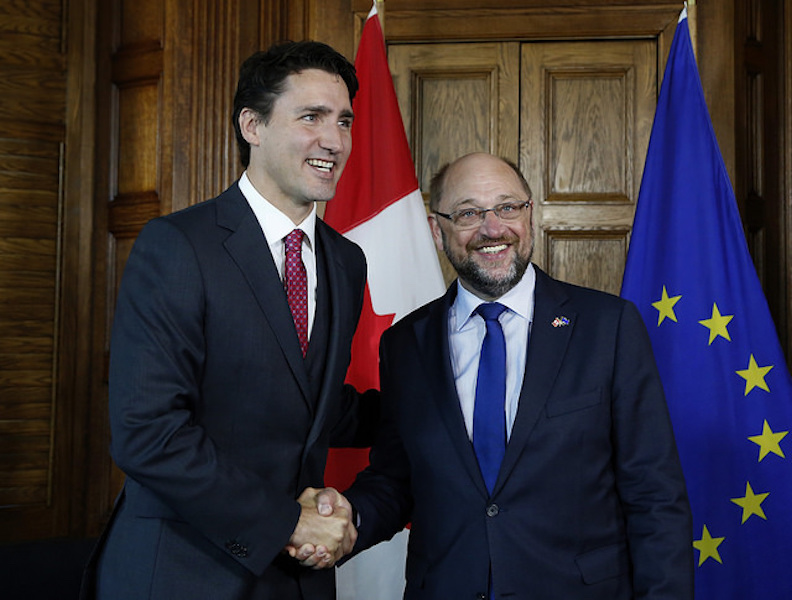Many Canadians have seen CETA being talked about in the news, but many Canadians are unaware about what the trade deal entails and what it could mean for Canada.
1) What is CETA?
The Comprehensive Economic and Trade Agreement (CETA) is a bilateral free trade agreement between Canada and the EU. The agreement would eliminate 98% of all tariffs and goods traded between Canada and the EU, which according to the Canadian government would give Canada “a clear advantage” over other countries who also export products to Europe.
2) What are the pros of CETA for Canada?
The pros for Canada include relieving a lot of pressure and dependency from the United States, and according to a joint Canada-EU study concluded that an expected 80,000 new jobs are to be produced in Canada along with a $1000 increase for the average Canadian family, and have Canadian products tap into a new market.
3) What are the cons of CETA for Canada?
The cons for Canada is competing with a new 500 million person market against Canada’s 35 million people, European corporations could start interfering in Canadian policies potentially threatening the environment, healthcare, job creation and other components that make up Canadian society and economy.
4) What is CETA expected to do for the Canadian and European economies?
CETA is expected to boost trade between Canada and the EU by 20% and is expected to boost the EU economy by £10.9 billion and Canada’s economy by £7.4 billion.
5) Has there been opposition towards CETA?
There has been considerable opposition towards CETA in both Canada and Europe, particularly from the agricultural sector. The French-speaking Walloons of Belgium who have significant influence in the Belgian government initially wanted to block the deal, fearing that it would hurt their agricultural sector and their investor-state dispute resolution system as well. Shortly after the Walloons took a firm stance against CETA in October of 2016, the Wallonian regional government voted “yes” for the CETA deal.
Opposition from Canada wasn’t as political as in Belgium but came from Quebec dairy producers and cheese makers. Quebec produces approximately 51% of Canada’s cheese production and despite the argument that CETA will allow for Canada greater entry into the European markets, competing against European cheeses is worrisome for the Quebec dairy industry. The EU has internal protections that differ from Canadian regulations in regards to hormones and production making it harder for them to export to Europe.
Photo: European Parliament President Martin Schulz meets with Prime Minister of Canada Justin Trudeau (2016), by European Union 2016 – European Parliament via Flickr. Licensed under CC BY-NC-ND 2.0
Disclaimer: Any views or opinions expressed in articles are solely those of the authors and do not necessarily represent the views of the NATO Association of Canada.




